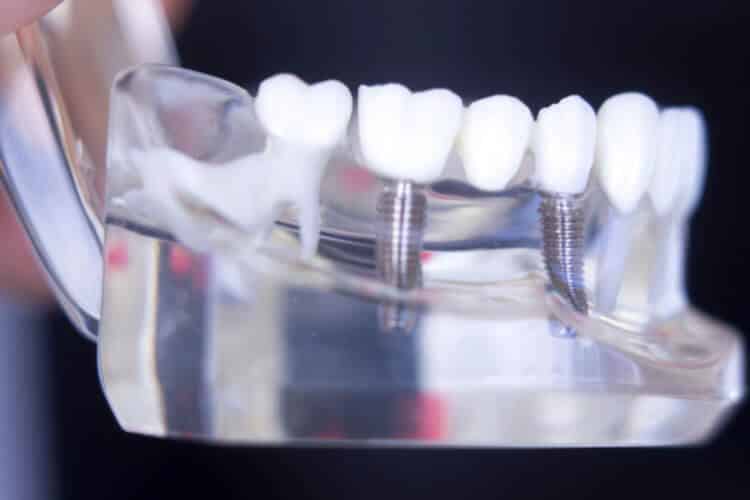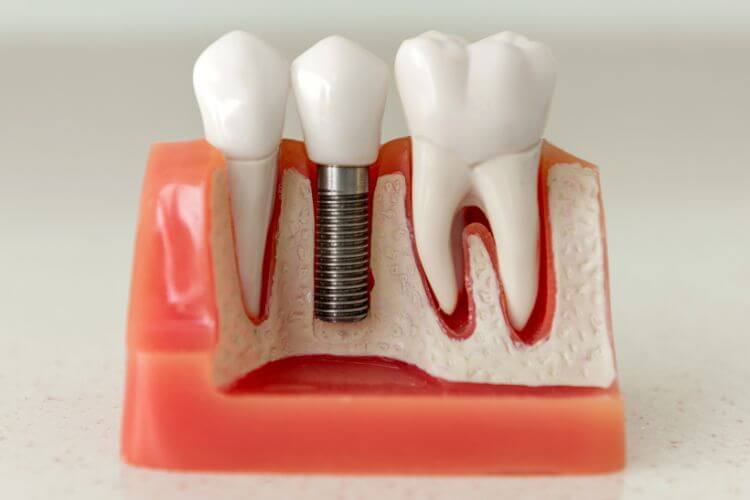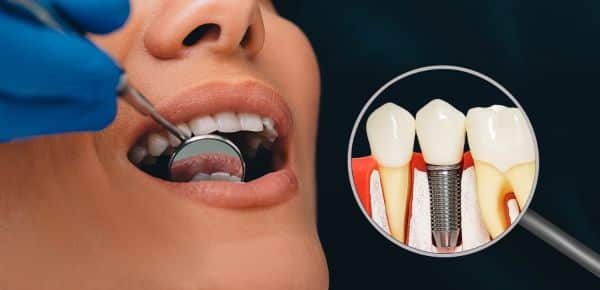Welcome, dear reader! 😄 Dental health plays a crucial role in our overall wellness (not to mention our killer smiles 😎), and dental implants have emerged as a rockstar solution for many facing tooth loss.
But let’s face it: the world of dental implants can seem as daunting as a root canal. One aspect that often causes furrowed brows is understanding the cost of dental implants.
But don’t fret! In this article, we aim to demystify the factors that affect these costs. By the end, we hope you’ll be able to navigate the financial landscape of dental implants with much more confidence.
We’ll explore how the number of implants needed, the type of material used, and the complexity of the procedure can impact costs. We’ll also look at regional variances and why dental implants could be a long-term cost-effective solution despite the initial investment.
So sit back, relax, and let us do the heavy lifting for just a minute. We promise, no dental drills needed for this journey! So let’s delve in, shall we? 🦷💰💡
Table of Contents
Factors Affecting the Cost of Dental Implants
Are you contemplating getting dental implants, but you’re a bit baffled by the varying costs you’ve stumbled upon during your research? You may have seen a price range starting from a mere $1,500, soaring all the way to a whopping $90,000. It’s quite a sizeable ratio, isn’t it? 🤔 But worry no more! We’re here to illuminate the factors influencing the cost of dental implants.
Let’s begin with a general overview. A single dental implant cost can fluctuate anywhere between $3,000 and $4,800. If you’re considering implant-supported dentures, then the range might climb to $3,500 to $6,000. As for full mouth implants, brace yourself, as costs can rocket from $60,000 to $90,000.
Number of Implants Needed
The cost is chiefly determined by how many implants you need. Naturally, if you require multiple implants, the cost will rise commensurately. But here’s a silver lining, when you get more than one implant, some dentists offer a price reduction for each additional implant.
Type of Implant Material
Different materials for implants come at different price points. Less costly materials may suit your budget, but remember, the longevity and success of dental implants depend heavily on the quality of the material used. For instance, our Dental Implant Success Depends page details how the right material and expert placement is crucial for a successful outcome. So it’s always a smart move to ponder quality over cost when it comes to your smile and health.
Procedure Complexity
The complexity of the procedure is another pivotal factor affecting the cost of dental implants. An uncomplicated, straightforward case will invariably be more cost-effective than one that requires additional surgeries like bone grafting or sinus lifts.
So, while the cost of dental implants can initially seem intimidating, considering the quality, durability, and positive impact on your overall dental health, they can be a wise and worthwhile investment. Deciding to get dental implants is a significant step towards restoring your smile and transforming your oral health.
So make sure you take these factors into account when planning your budget. 😊 Let’s bring back your radiant smile together!
Location and Regional Variances
In the realm of dental care, the price point for vital services like dental implants can be subject to a fair share of variances—that too, significant ones—triggered mainly by geographical factors. The dental implant cost can differ dramatically from region to region, nudging patients to factor in this key aspect before making their final decision.
In the United States, for instance, we notice a remarkable fluctuation in pricing. The average sum one could anticipate spending on a dental implant lies somewhere between $3,000 and $4,500 per tooth. However, don’t take this as the golden standard just yet!
As we journey from one corner of the country to another, the cost estimates sway along. Some areas may offer the same service at an astonishingly low cost of $2,000 per tooth, much lower than the generalized average. Simultaneously, in other, perhaps more upscale localities, the price tag might shockingly escalate to almost double the average, reaching up to $8,000 per tooth. Talk about a rollercoaster, right? 🎢
Now, let’s venture offshore for a moment. A commendable example of cost difference can be spotted in Ukraine. Dental implants here surprisingly come at what can only be deemed a ‘steal deal.’ The cost can dip as low as $200 per tooth – yes, you read it right, a whole lot of zeroes less than the US rates! 🌎
The stark disparity of costs emphasizes the importance of location in determining dental implant fees. Remember— just like in real estate, in dental care too, it’s all about ‘location, location, location.’ So, when considering dental work, it’s beneficial to explore various geographical alternatives. But it’s also critical to ensure that affordable doesn’t compromise the quality of care.
Keeping an eye on regional cost fluctuations might save you a good chunk of money. In the end, however, the comfort of the procedure and the skill and expertise of your dentist should take precedence. After all, you aren’t merely purchasing a product; you’re investing in your health and well-being. 🦷🙂
Long-term Cost-effectiveness
To many, the upfront cost of dental implants might seem quite steep. But before you balk at the costs, it’s important to consider the long-term cost-effectiveness of this investment. When compared to alternatives, such as dentures or bridges, dental implants have several benefits that make them a smart financial decision in the long run.
Firstly, dental implants are built to last. They’re designed to be a long-term solution. Dentures and bridges can wear down or break over time, necessitating costly replacements every 5 to 10 years. On the other hand, dental implants, given proper care, can last a lifetime. This longevity can equate to significant savings over time.
Next, it’s worth considering the impact on your overall oral health. Dental implants function like your own teeth, allowing you to eat, speak, and smile with confidence. They maintain your facial structure, preventing bone loss that commonly happens with missing teeth. The resulting improvement in oral health can offset future dental costs.
Lastly, let’s consider comfort and convenience. Dental implants don’t require removal for cleaning or adjustment like dentures. This convenience can save you time, discomfort, and the cost associated with the upkeep and adjustment of removable appliances.
To sum it up:
- Dental implants tend to be a one-time cost, unlike dentures or bridges, which may need to be replaced over time.
- They contribute to healthier oral conditions, possibly reducing future dental expenses.
- The day-to-day convenience offered by dental implants over removable options can save both time and money.
In short, dental implants tend to offset their upfront costs with their longevity, health benefits, and convenience. When making a decision regarding dental work, it’s crucial to factor in these long-term considerations alongside the immediate price tag. And while dental implants might seem pricey up front, over the long haul, you may find they’re well worth the investment.
Call us at (323) DEN-TIST (336-8478) or book an appointment online for a free consultation at Wilshire Smile Studio.
Frequently Asked Questions
1. What factors contribute to the cost of dental implants? The cost of dental implants depends on factors such as the number of implants needed, the location of the dental clinic, the experience of the dentist, the type of materials used, additional procedures required (such as bone grafting or sinus lift), and any dental insurance coverage.
2. How much does a dental implant typically cost? On average, a single dental implant can cost between $1,500 to $6,000. However, this cost can vary depending on the factors mentioned earlier. It is important to consult with a dentist for an accurate cost estimation.
3. Are dental implants covered by insurance? Some dental insurance plans cover a portion of the cost of dental implants, while others may not provide any coverage at all. It is advisable to check with your insurance provider to understand what your specific plan covers.
4. Are there any alternatives to dental implants that are more affordable? Yes, there are alternatives to dental implants such as dentures or dental bridges that may be more affordable in some cases. However, it is important to discuss with your dentist to determine the best option for your specific dental needs.
5. Is the cost of dental implants worth it? The cost of dental implants is often considered a worthwhile investment due to their durability, natural appearance, and functionality. Dental implants can improve oral health, restore confidence in one’s smile, and have a long lifespan if properly cared for.









